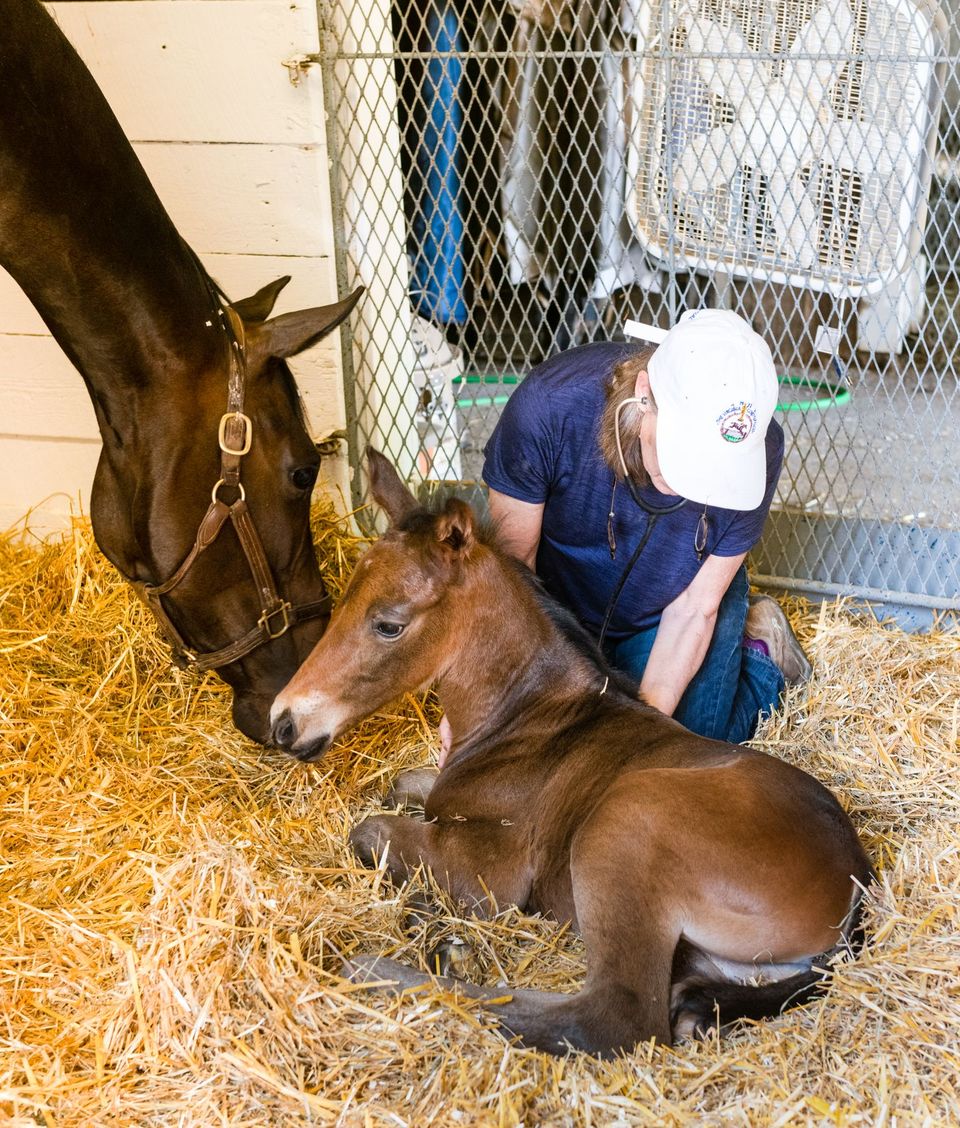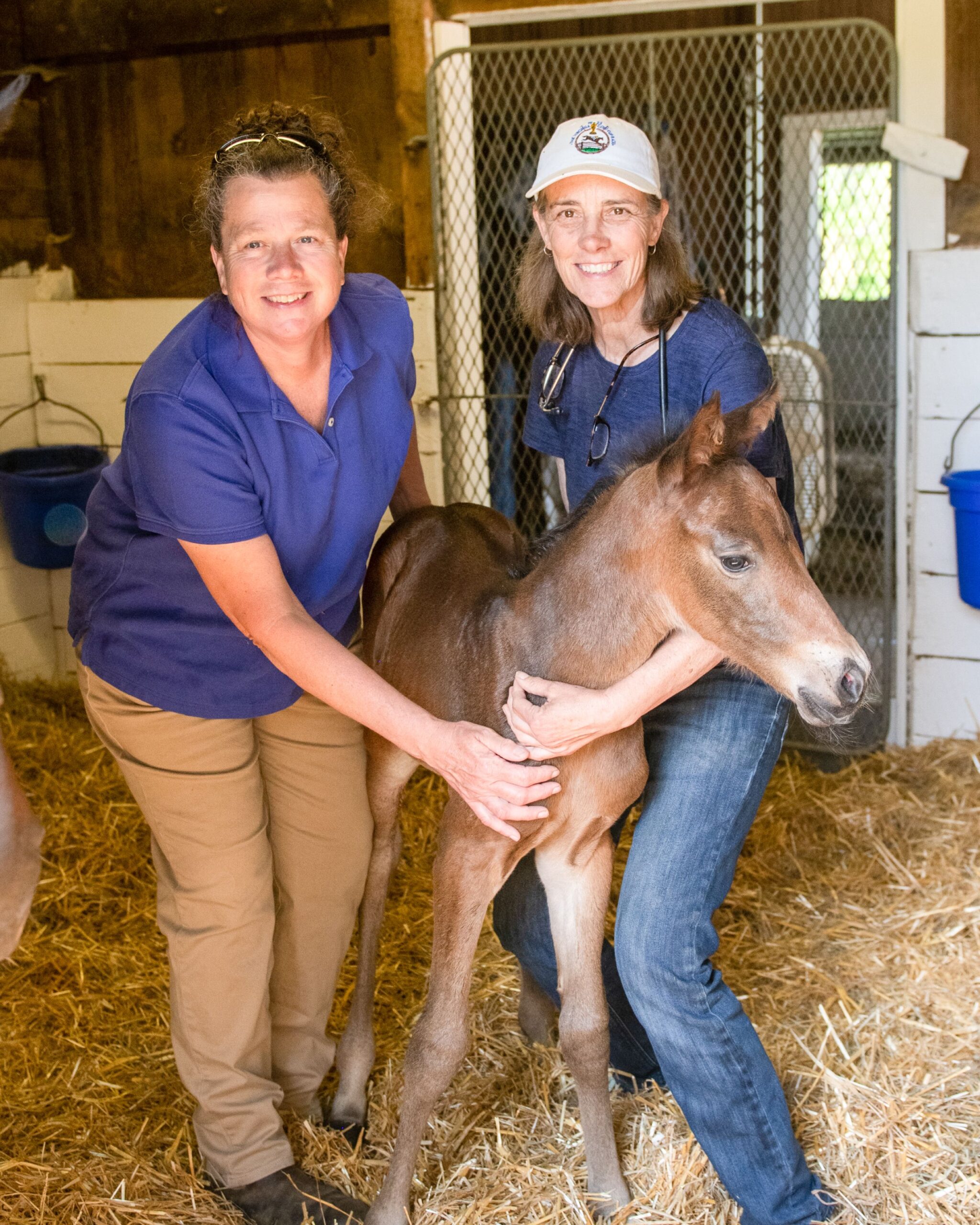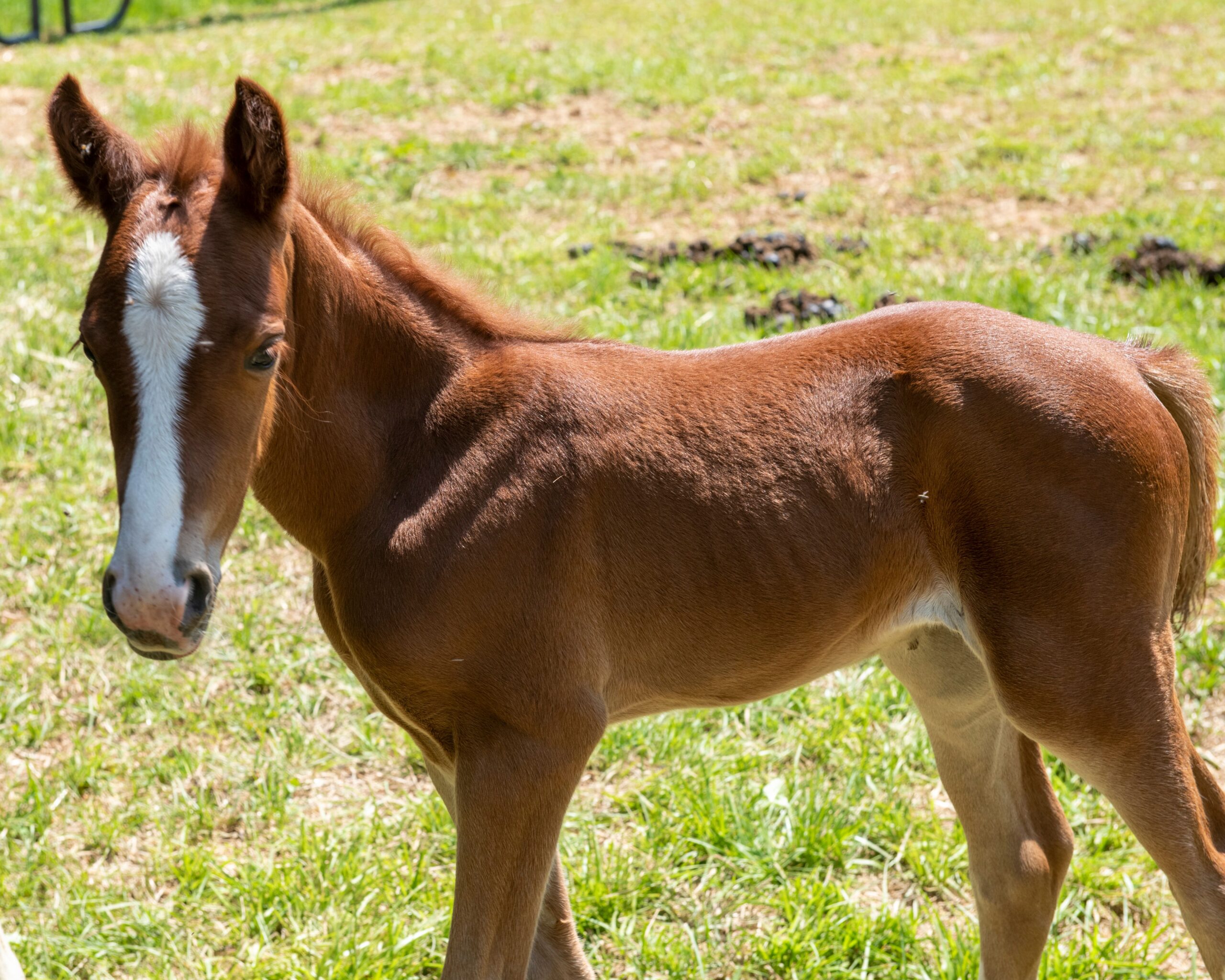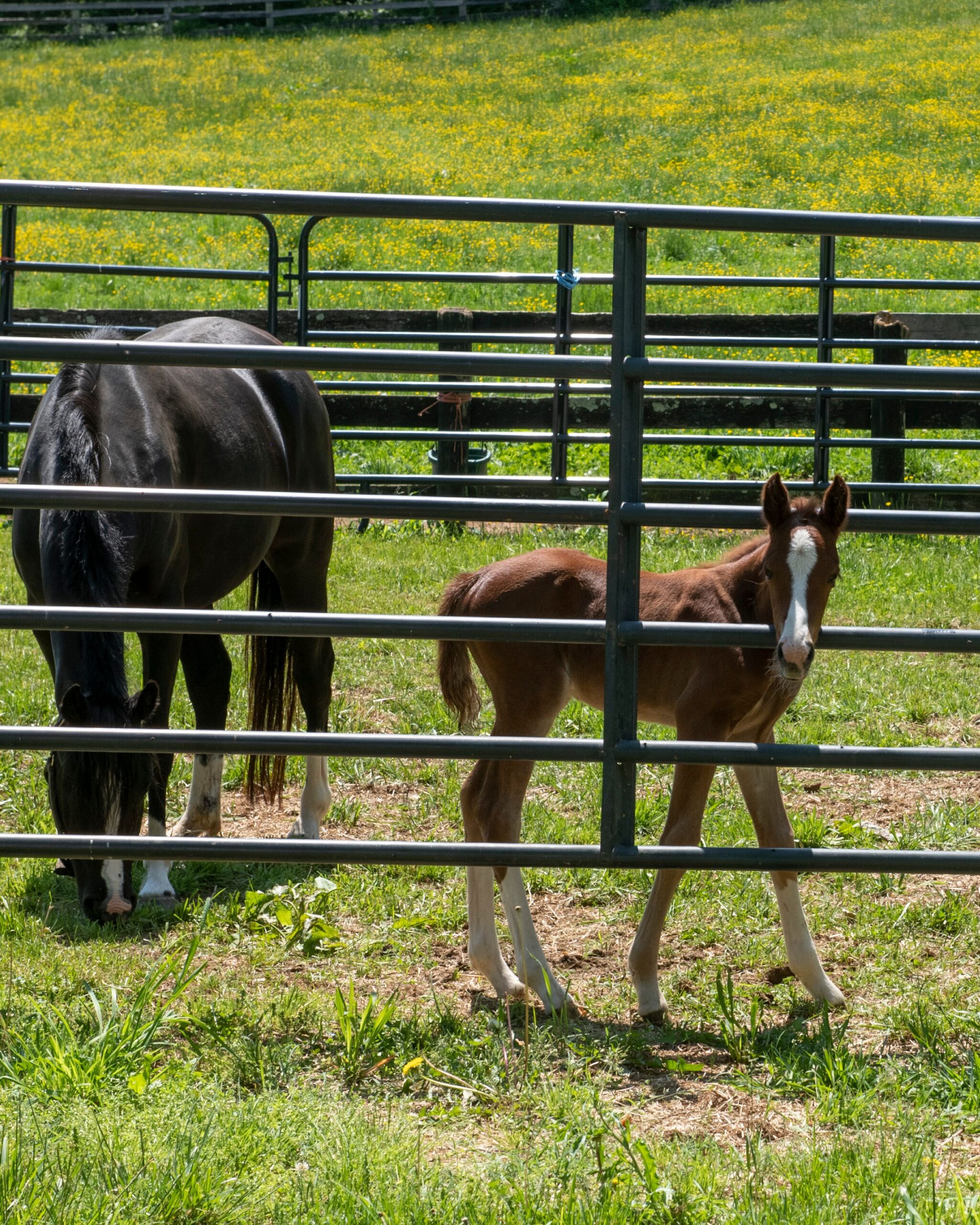Foaling Season with Dr. Ellen Stephens

Written by Sarah Hickner
Photos by Joanne Maisano
When scrolling through the Facebook page of Dr. Ellen Stephens of Laurel Inc Equine Reproduction, you’ll find a lady with sparkling eyes, a smile stretched across her face, and fuzzy foals posing in front of her. It’s clear Dr. Stephens loves her work, and her work loves her back.
Dr. Stephens has spent decades working as a veterinarian in the equine reproductive field, developing a name for herself in the industry. When asked why she went into breeding, her answer is simple: “There’s a lot of positives!” The veterinary world is full of negatives. From colic surgeries to injuries, there’s never a shortage of tough moments. But, in the breeding world, there is a lot to celebrate.


Left: Patricia Ramey and Dr. Stepehns with a newborn foal. Right: Dr. Stephens tends to a newborn foal.
For Stephens, that celebration is the product of achieving results. When a mare ovulates, her egg is able to be fertilized for eighteen hours. Sperm from a live cover breeding can live up to 48 hours inside the uterus, whereas sperm from artificial insemination only has a 12 to 24 hour lifespan. To put it bluntly, timing is everything, and windows of opportunity are small.
Dr. Stephens’ ultrasound machine is her most-used tool, and she checks mares frequently when working to get them in foal. Using the ultrasound to monitor the ovulation schedule of the mare helps her track the cycle and hopefully sync the insemination with the 18-hour ovulation window. By proactively checking and tracking, she’s often able to make the stars align.

For years, Dr. Stephens had her own farm and clients came to her. One year she foaled out 60 mares with only a ten stall barn. However, the stationary nature of tending to her farm meant turning down opportunities elsewhere. When her lease on the property ended, she realized there was freedom in mobility.
Dr. Stephens now makes farm calls. She visits five to ten mares a day and spends much of the late winter and early spring performing new foal exams. Her two biggest clients are Blue Ridge Farm and Hickory Tree Farm. Blue Ridge has been a Thoroughbred breeding farm since 1903 and Hickory Tree is a full-service Thoroughbred training facility that does everything from breeding to training racehorses.
Though most breeding farms have staff who are experienced in foaling, her role is still vital. She arrives the following day to check the foal. “The first three days of life for the foal, minutes are hours and hours are days. If the foal even looks at you sideways, I need to be there.”
When asked what she does during the off-season, she declares, “I visit my kids!” She loves to travel and collect memories like hiking the Inca trail to Machu Picchu with her son, a small animal veterinarian who lives in Seattle. “We like to do things, go on adventures.”

In addition, she has a new off-season gig as a Virginia Racing Commission veterinarian. During the fall race meets at Colonial Downs, she performed pre-race exams in order to check the horses for lameness before competing. Dr. Stephens was quick to point out, “We all just want what’s best for the horses.” She worked Gold Cup this year as well.
For her latest adventure, Dr. Stephens has a 2022 foal of her own out of stakes-winning mare, Beware of the Bop. Dr. Stephens took care of Beware of the Bop for several years when she was bred to Scat Daddy, Gio Ponte, Ghost Zapper, and others. When her client, Jim Carter, sold his farm, he wanted to make sure the mare went to a forever home. Dr. Stephens gladly stepped up.
Dr. Stephens’ favorite thing about the breeding business is that “It’s a really happy place, people love their foals. And the other thing that’s great is having been here for so long the fillies turn into broodmares and then they have a baby! You develop lifelong friendships with the clients and the horses.” ML
This article first appeared in the June 2022 Issue.


